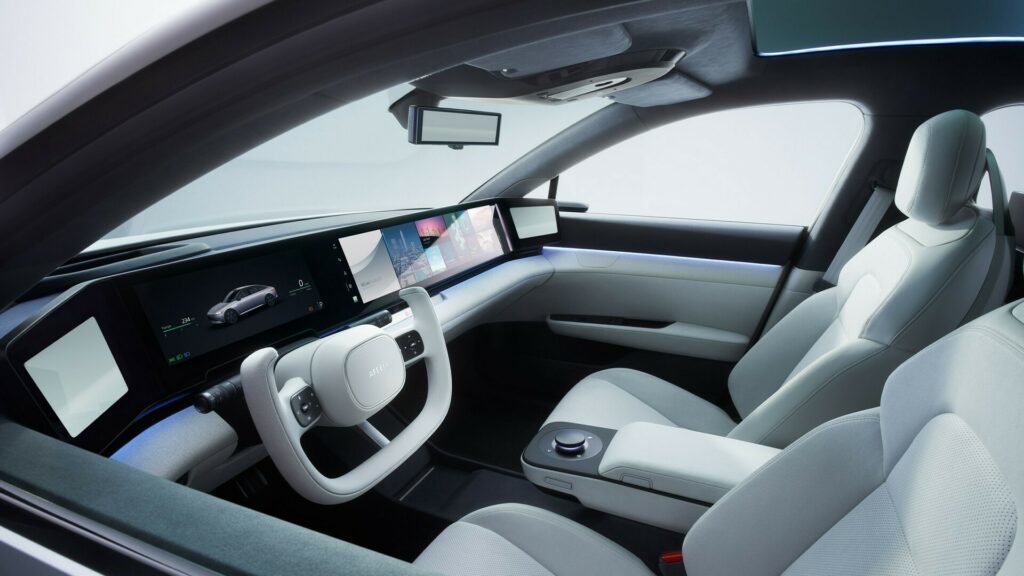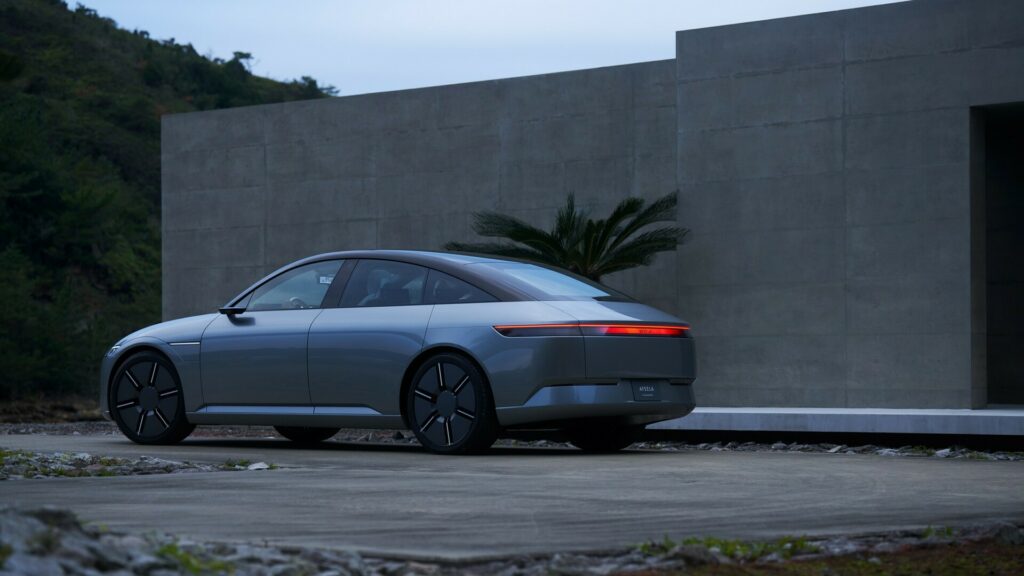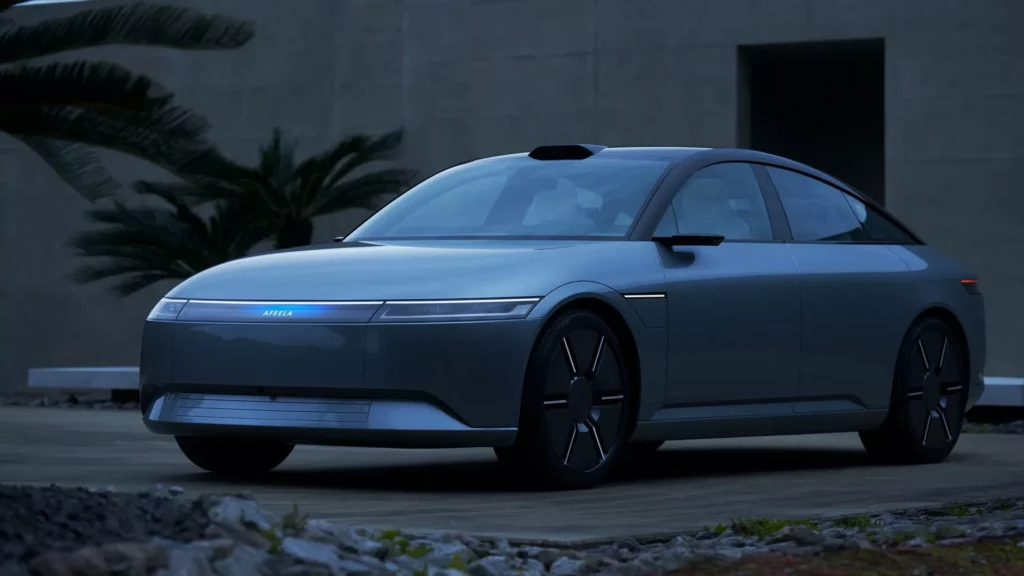The forthcoming EV brought to life by Honda and Sony’s Afeela partnership is shaping up to be so laden with technologies that it could make other EVs look a little primitive. Honda and Sony won’t be building it without help, however.
A key contributor to the project is Qualcomm Technologies. The chip manufacturer and AI developer is set to outfit Afeela’s first production model with its Snapdragon Digital Chassis, capable of doing 800 trillion operations per second. That’s significantly more than the chips primarily used in current production cars that can do 10 trillion to 50 trillion operations per second.
Read: Sony Honda Mobility’s Afeela Sedan To Be Built In US, Ride On Honda’s New EV Platform
This isn’t where Qualcomm’s involvement will stop. The EV is tipped to have no less than 45 sensors, including eight cameras and one LiDAR. All of these will be powered by Qualcomm. The chip manufacturer’s Snapdragon Ride system will also power the autonomous driving functions, its Snapdragon connectivity chips will be used for the 5G cellular and WiFi connectivity, and the Snapdragon cockpit will be used to power the selection of interior screens found in the cabin and the screen found on the front fascia.

Sony is bringing its gaming expertise to the project and will use Qualcomm’s Epic Games Unreal Engine as a real-time 3D creation tool. Chief analyst at AutoPacific, Ed Kim, told Auto News that Qualcomm’s involvement in the project is so important that it’s almost more of a Qualcomm EV than one from Sony Honda Mobility.
According to vice president of product management for Qualcomm, Bill Pinnell, the company is moving away from being a smartphone-focused company and notes that the Afeela EV will be one of the first products where all of its technologies can be incorporated into one.
“We see the importance of diversity and moving away from a mobile-centric company, or purely mobile centric to have adjacent businesses that can use all the bits and pieces we already did with communications,” he said. “AI is super important, as are all the display graphics multimedia technologies that we’ve developed over the years, so the automotive part is a superset of nearly everything we do.”
Technical specifications about Afeela’s first project are not yet known but the company wants to start accepting pre-orders in the first half of 2025 before deliveries commence in 2026.




